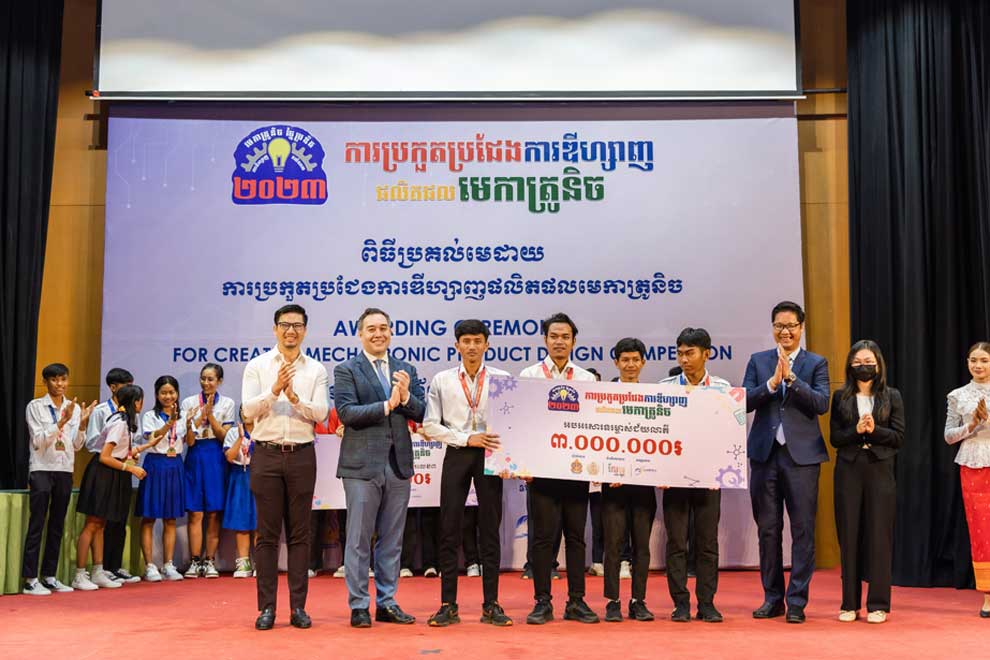
The ministry announces winners of the first National Creative Mechatronic Product Design Competition for secondary school students. PHOTO SUPPLIED
The top five of 30 secondary school student teams from schools in Cambodia were selected as the winners of the first National Creative Mechatronic Product Design Competition early this week.
Nine of the thirty groups of students which participated in the competition made it to the October 30 final, which took place in Phnom Penh, with five being selected as winners.
The winning teams each designed and produced a machine which offered a solution to a common problem in the Kingdom.
The five winning devices were a solar powered dehydrator, a solar powered irrigation device, one which extracts metal from rice, a crop irrigation management system and a remote controlled rice harvester.
The Ministry of Education, Youth and Sport and the Ministry of Economy and Finance collaborated with the Research Creativity and Innovation Fund (RCI Fund) and STEM Cambodia to decide on the winning projects, according to an October 31 joint press release.
The competition was open to the students of all of the Kingdom’s public and private schools. It aimed to promote creativity in the fast-growing mechatronic field, which combines electrical, mechanical and computer engineering.
The contest provided them with the opportunity to demonstrate their ability to create projects that can solve social problems, as well as showcase their intelligence and creativity.
According to the press release, the judging panel consisted of San Vathana, undersecretary of state at the education ministry, Allen Tan, managing director of STEM Cambodia, Yim Richard, CEO of the Cambodia-Japan Digitalized Manufacturing Centre (CJDM), and Ly Porhour, Boost Capital’s Cambodian product manager.
“This programme provided a great opportunity for students, because group work teaches students to exchange ideas in order to create something which benefits them. They have all gained valuable experience through learning and creativity,” said Vathana, addressing the award ceremony.
“The candidates met with many experienced professionals for guidance and training. Teachers, educational institutions and students should all be creative, problem-solvers, and take note of social problems in the classroom, as well as outside,” he added.
“Today, we are witnessing the rapid development of education in Cambodia. Five years ago, we would never have imagined that high school students would be able to come up with such interesting ideas and projects. It’s really remarkable,” said Tan.
The overall winners were the “M4TB group” from Tbong Khmum province, representing Hun Sen O’Reang-ou High School, who developed a solar dehydrator which can be used to dry vegetables, fish, meat, fruit and many other things.
Second place was awarded to “Builder Max” from Phnom Penh’s Prek Leap High School, who created a solar-powered machine that automatically controls irrigation, providing water when the soil is dry, using a mobile phone.
In third was the capital’s “Grade 12 Youth Group” from the International Pannasastra School, who produced a device which extracts metal from rice using an electromagnet.
The fourth-ranked group was “Teen-Bot” from Kampong Chhnang province’s Borey Vichea private general education school, who incorporated technology that supports irrigation systems and automatic pumps and can indicate ground water through an LCD screen.
Rounding out the top five was the “Banteay Meanchey group” from their namesake province’s Serei Saophoan High School. They developed a rice harvesting machine that can be controlled remotely by a mobile phone.











